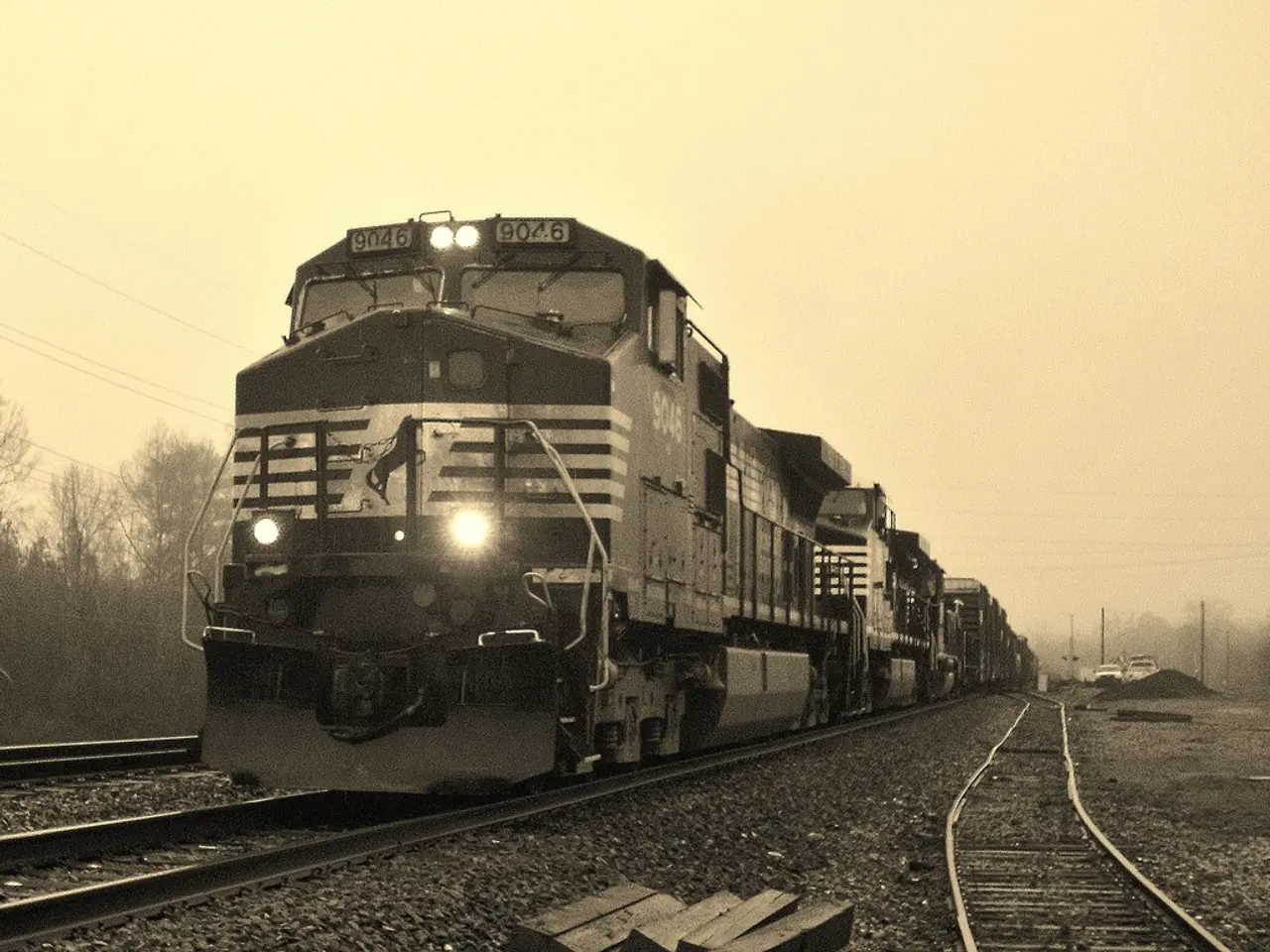Kazakhstan Modernizes Its Rail System to Secure Its Position as a Global Transit Center
Modernization and Digital Transformation of Kazakhstan's Railway Sector
Kazakhstan's extensive railway network, spanning 16,000 kilometers, serves as the backbone of the country's transport and transit system. The nation, strategically located on five global railway corridors, has emerged as a major international transit hub.
Recent reengineering of the railway industry has addressed long-standing issues such as network congestion, manual planning, and paper-based control. This transformation has led to a competitive transit product, offering reduced delivery times, stable tariffs, and reliable service.
In 2024, four government services in the railway sector were fully digitized, with over 28,000 services delivered, 99% of them online. This year, a new safety certificate issuance service was added to the registry.
The government's focus on digital transformation includes modernizing infrastructure and integrating advanced digital technologies to enhance efficiency and transit capacity. Key initiatives include digital twins of the mainline network, AI-based planning, wagon number recognition, GPS tracking integration, and automated downtime monitoring.
By 2030, Kazakhstan plans to modernize 5,000 kilometers of railway tracks and repair 11,000 kilometers, with several major lines either recently completed or due for commissioning soon. Digital transformation efforts emphasize transitioning to electronic formats, reengineering business processes, establishing an innovation ecosystem, and connecting trains with satellite internet services such as OneWeb and Starlink.
Prime Minister Olzhas Bektenov has directed a comprehensive approach to digitization, highlighting the deployment of automated management systems, digital dispatching, and integration of IT infrastructure. The government recently launched a supercomputer cluster to support AI analytics for predicting risks like accidents, tracking infrastructure wear, and generating data-driven solutions.
The use of artificial intelligence and support for startups in the sector are considered crucial for further advancements. Startups at Astana Hub are contributing with platforms for freight tracking, contract management, transport automation, and wagon fleet management. In 2024, their revenues exceeded 4.5 billion tenge (US$8.3 million) and more than 400 jobs were created.
The ministry is preparing an intergovernmental agreement to develop the Trans-Caspian International Transport Route (TITR), reinforcing Kazakhstan's role in global logistics. On the TITR, delivery times have been reduced from 53 to 17 days.
Moreover, Kazakhstan operates 1,967 locomotives, with 456 new units to be purchased by 2029, some of which will come from domestic plants and China's CRRC. A new transport automation platform has been introduced, which manages wagons, automates planning, and reduces empty runs by 10%, while increasing wagon turnover by 15%.
Seven terminals currently operate in Kazakhstan, with new hubs planned in Selyatino and Svisloch. The freight wagon fleet comprises 142,000 units, managed by over 300 operators, which cover the country's needs. By 2029, operators plan to purchase more than 7,000 new wagons to sustain growth in freight transport.
Satellite internet has been tested on select passenger routes, and scaling is being considered. The ministry launched the transit information system within the Eurasian Economic Union (EAEU) framework, allowing real-time monitoring of cargo, ensuring cybersecurity compliance, and connected with EAEU member state systems. At the first stage, the system will cover up to 6% of cargo flows across Kazakhstan's external borders, helping to prevent false transit schemes.
In summary, Kazakhstan’s future plans involve continuing large-scale railway infrastructure modernization in parallel with expanding digital innovations such as AI, real-time cargo tracking, electronic services, and satellite internet-enabled connectivity for trains. These efforts are designed to reinforce Kazakhstan's position as a key global transit and logistics hub by 2030.
Read also:
- Weekly happenings in the German Federal Parliament (Bundestag)
- Southwest region's most popular posts, accompanied by an inquiry:
- Discussion between Putin and Trump in Alaska could potentially overshadow Ukraine's concerns
- Massive 8.8 earthquake hits off the coast of Russia's Kamchatka Peninsula, prompting Japan to issue a tsunami alert.








